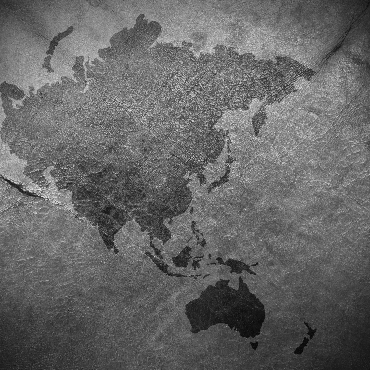VIETNAMESE PRESIDENT RESIGNS AMID ANTI-CORRUPTION CAMPAIGN
In 2023, Vietnam was the only country that received state visits from both U.S. President Joe Biden and Chinese General Secretary Xi Jinping. That distinction underscored the critical role Vietnam plays in the broader dynamics of great power competition between Washington and Beijing. Domestic political stress, though, could complicate this geopolitical opportunity for Hanoi. In March, Vietnamese President Vo Van Thuong resigned his office amid mounting allegations of corruption. It was the second presidential departure in just two years for Vietnam. Thuong, who had assumed office in March 2023, faced increasing scrutiny linked to a corruption probe involving a former provincial leader he previously supervised. His resignation came ahead of a parliamentary session focused on anti-corruption personnel matters. These developments, and the ongoing anti-corruption campaign that drove them, raise questions about Vietnam's political stability amid its expanding role in global manufacturing and escalating U.S.-China competition. (Associated Press, March 20, 2024)
IN BREAK FROM PACIFIST PRINCIPLES, JAPAN APPROVES PLAN TO SELL JETS
In a landmark March decision, Japan's Cabinet approved the future export of next-generation fighter jets developed in partnership with Britain and Italy. The move marked a significant shift from Tokyo's traditional postwar pacifist stance. It reflects the country's aims to bolster its role in global security and strengthen its defense industry amid rising regional tensions, particularly with China. The decision also includes revisions to Japan's arms export guidelines that permit the sale of co-produced lethal weapons to countries beyond Japan's project partners. While emphasizing continued adherence to pacifist principles, Japanese officials argue that these changes are necessary to ensure the new fighter jets’ development and deployment capabilities, reflecting a broader trend of deregulation in Japan's defense sector and strategically positioning Japan against geopolitical rivals like China and Russia. (Associated Press, March 26, 2024)
MALAYSIA RISES AS CRUCIAL LINK IN CHIP SUPPLY CHAIN...
Propelled by escalating trade restrictions and geopolitical tensions between the U.S. and China, the world's leading tech firms are expanding their operations beyond the PRC. European and American companies such as AT&S, Intel, and Nvidia are specifically eyeing Malaysia and its competitive advantage in manufacturing. These firms are aiming to diversify their supply chains and capitalize on Malaysia's robust infrastructure, skilled workforce, and strategic location in Southeast Asia. For its part, Kuala Lumpur has angled to attract these companies with free-trade zones and tax incentives. The broader goal is to position Malaysia as a hub for semiconductor production. (New York Times, March 13, 2024)
...WHILE MAINTAINING COOPERATION WITH BEIJING
Malaysian Prime Minister Anwar Ibrahim has emphasized the importance of maintaining strong economic ties with China amid pressures from the United States and its allies to align with Western strategic interests. Speaking at the ASEAN summit in Melbourne, Ibrahim emphasized that, while Malaysia values its partnership with the U.S., Europe, and Australia, it will not allow these relationships to dictate its ties with China, which represents his country's largest trading partner. Ibrahim's comments come against the backdrop of Malaysia's ongoing cooperation with Beijing on major infrastructure projects, such as the $10 billion China-led rail project, under the auspices of the PRC's Belt and Road Initiative. This railway, set to connect Malaysia's east and west coasts by 2026, is now being considered for extension to Thailand, further integrating regional transport networks. (Associated Press, March 4, 2024; Reuters, March 28, 2024)
U.S., JAPAN, PHILIPPINES PLAN JOINT SOUTH CHINA SEA PATROLS
The U.S., Japan, and the Philippines have announced plans to launch joint naval patrols in the South China Sea later in 2024 as part of a broader strategy to counter China's increasing assertiveness in the region. The patrols, marking Japan's first such cooperation with the U.S. and the Philippines in the area, aimed to signal multilateral opposition to Beijing's maritime claims in the region. They also seek to bolster international support for the Philippines, which has borne the brunt of Beijing's recent brinkmanship in Manila’s territorial waters. (Politico, March 29, 2024)
Want these sent to your inbox?
Subscribe
Indo-Pacific Monitor No. 37
Related Categories:
Arms Control and Proliferation; Democracy and Governance; Intelligence and Counterintelligence; International Economics and Trade; Military Innovation; Public Diplomacy and Information Operations; Science and Technology; Corruption; China; Europe; Italy; Japan; Philippines; Southeast Asia; Vietnam; United Kingdom ; United States
